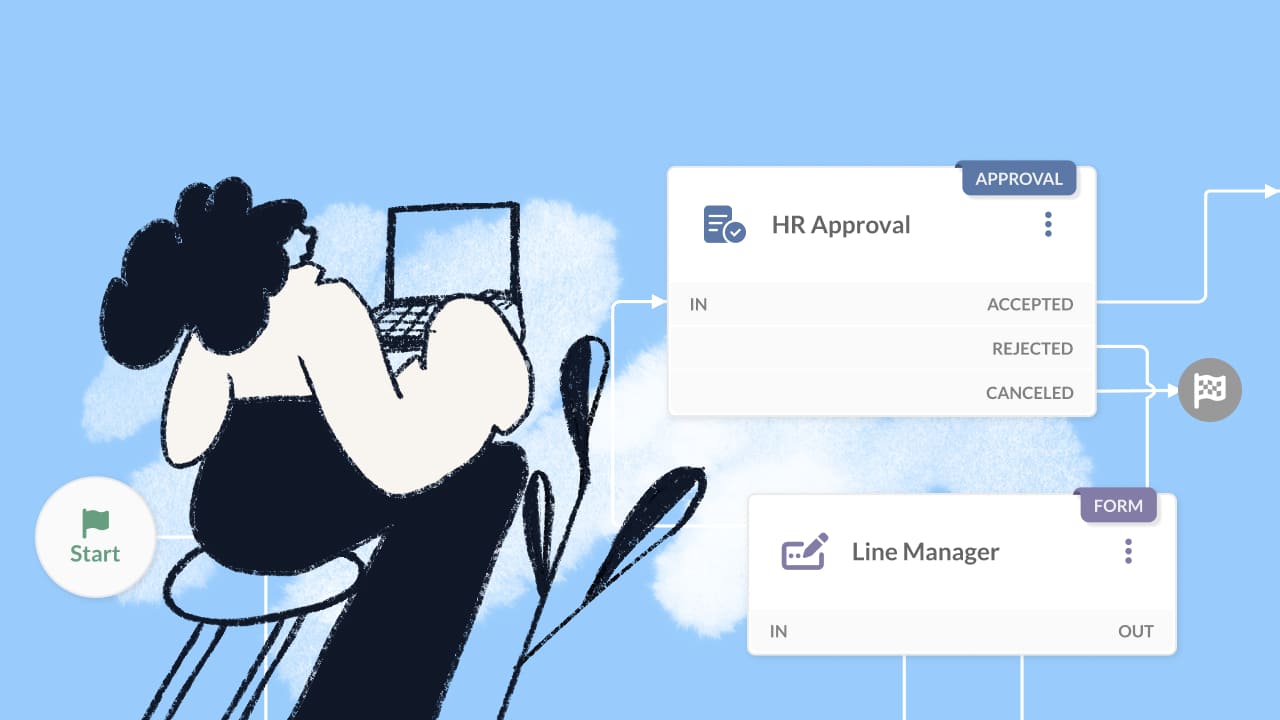Understanding help desk statistics can significantly impact your business strategies. Why? Because they help you adapt to evolving customer expectations and improve service efficiency.
There are many help desk statistics and facts that can illuminate key areas of your customer service operations. By analyzing these metrics, organizations can identify strengths and weaknesses in their support systems, allowing them to make informed decisions that enhance overall performance.
In a world where customer experience is paramount, staying updated on these statistics is essential for maintaining a competitive edge. This article dives deep into the realm of help desk statistics, providing insights that can drive your business forward.
So, let’s explore the fascinating data that can transform your customer service approach and elevate your organization’s success!

What are help desk statistics?
Help desk statistics refer to data points that provide insights into the performance, efficiency, and trends related to help desk operations. These statistics encompass various aspects, including customer satisfaction, response times, ticket resolution rates, and the impact of technology on service delivery.
By analyzing these statistics, organizations can identify areas for improvement and track their progress over time. According to a report by FinancesOnline (yes, we are already providing some statistics), the help desk software market is growing rapidly, reflecting the increasing importance of effective help desk systems in enhancing customer service.
These statistics are not merely numbers; they reflect the experiences of both customers and service agents. They help organizations understand how effectively they meet customer needs and where they can enhance their support processes.
For instance, a statistic from Unicom Corp states that 33% of American consumers will consider switching companies immediately after a single instance of poor service, highlighting the critical importance of maintaining high standards in customer service.

Why is it important to stay on top of help desk statistics?
Staying updated with help desk statistics is essential for several reasons:
- Improved customer satisfaction: Understanding customer expectations helps in refining support strategies, leading to higher satisfaction rates.
- Informed decision-making: Data-driven decisions enable organizations to allocate resources effectively and implement necessary changes.
- Competitive advantage: Keeping abreast of industry trends allows businesses to stay ahead of competitors by adopting best practices.
- Enhanced efficiency: Monitoring ticket resolution times and agent performance can lead to process optimizations, reducing operational costs.
Help desk statistics & facts to pay attention to
The realm of help desk statistics is vast. Organizations must pay attention to these statistics to adapt to changing customer needs and technological advancements. The landscape of customer service is dynamic, with new trends emerging regularly, making it crucial to stay informed.
As highlighted by Desku, the help desk industry has undergone significant changes, transitioning from simple ticketing systems to comprehensive platforms that enhance customer experience.
Statistics provide valuable insights into how help desks operate and the challenges they face. For instance, a rise in ticket volume (not our Ticket Volume - IT Podcast, but you can check it out anyways) may indicate a need for additional staffing or improved self-service options. Moreover, understanding the impact of automation and Artificial Intelligence (AI) in help desks can help organizations leverage these technologies for better service delivery.
5 help desk customer experience statistics
Customer experience is at the heart of effective help desk operations. Here are five key statistics that illustrate the importance of customer experience in help desk services:
1. 91% of customers are more likely to make another purchase after a great service experience. This statistic underscores the direct correlation between positive customer service and repeat business (source: Easy Project).
2. 79% of consumers say personalized customer service is more important than personalized marketing. This highlights the need for help desks to focus on delivering tailored support experiences that resonate with individual customers (source: Unicom Corp).
3. Only 36% of consumers feel like a unique individual when engaging with customer service. This statistic points to a significant gap in customer service personalization, indicating that many businesses need to improve their approach (source: Finances Online).
4. 80% of customers would switch companies due to poor customer service. This statistic emphasizes the critical role that effective help desk operations play in customer retention (source: Notify Visitors).
5. 54% of customers say it generally feels like sales, service, and marketing don’t share information. This lack of cohesion can lead to disjointed customer experiences, making it essential for help desks to foster collaboration across departments (source: Webinar Care).
5 help desk industry statistics
Understanding the broader industry context is vital for effective help desk management. Here are five industry statistics that provide insight into current trends:
1. The help desk software market share is projected to reach $21.8 billion by 2027. This growth indicates increasing investment in help desk technologies, highlighting their importance in business operations (source: Easy Project).
2. Average ticket volume has risen by 16% since the pandemic. This statistic reflects the growing demand for customer support services in a post-pandemic world (source: Unicom Corp).
3. 60% of high-growth customer service teams use a help desk. This statistic shows a clear link between the adoption of help desk solutions and business growth (source: Finances Online).
4. Help desk software use is up 11 points from 2020, reaching 53% among customer service teams. This increase indicates a trend toward digital transformation in customer support (source: Notify Visitors).
5. 37% of organizations provide customer service agents with AI tools to enhance their performance. This statistic highlights the growing role of artificial intelligence in improving help desk efficiency and effectiveness (source: Webinar Care).
5 help desk challenges statistics
Help desks face various challenges that can impact their performance. Here are five statistics that shed light on these challenges:
1. 68.8% is the net first-level resolution rate. This statistic indicates that a significant percentage of issues require further escalation, suggesting room for improvement in initial support interactions (source: Easy Project).
2. 22% of total service desk tickets can be resolved at practically no cost with the help of automation. This statistic emphasizes the potential for automation to enhance efficiency and reduce costs in help desk operations (source: Unicom Corp).
3. 60% of customers expect a response within one hour. This expectation sets a high standard for response times, posing a challenge for help desks to meet customer demands (source: Finances Online).
4. 62% of customers say that service insight and knowledge is key to a good customer service experience. This statistic highlights the importance of equipping help desk agents with the right information to resolve issues effectively (source: Notify Visitors).
5. 84% of customers value being treated like a person, not just a ticket. This statistic underscores the need for help desks to prioritize personalized interactions to foster positive customer relationships (source: Webinar Care).
5 Help desk communication channels statistics
Effective communication is crucial for successful help desk operations. Here are five statistics that illustrate the importance of various communication channels:
1. 98% of service desk issues are resolved over calls. This statistic highlights the enduring relevance of voice communication in customer support (source: Easy Project).
2. Email remains the most popular method for measuring customer satisfaction, with 97% preference. This statistic indicates that email surveys are an effective tool for gathering feedback from customers (source: Unicom Corp).
3. 70% of customers prefer self-service options for resolving issues. This trend indicates a shift toward empowering customers to find solutions independently (source: Finances Online).
4. 84% of customers are willing to spend more to receive better customer service. This statistic emphasizes the financial impact of delivering exceptional service experiences (source: Notify Visitors).
5. 68% of customers say proactive customer service notifications improve their perception of a brand. This statistic highlights the value of proactive communication in enhancing customer satisfaction (source: Webinar Care).

5 help desk artificial intelligence statistics
Artificial intelligence is transforming help desk operations. Here are five statistics that demonstrate its impact:
1. 37% of customer service agents report a 69% improvement in satisfaction when using AI tools. This statistic illustrates how AI can enhance the work experience for support agents, leading to better service outcomes (source: Easy Project).
2. 91% of service desks plan to offer more self-service options in the future. This statistic indicates a growing trend toward leveraging AI for self-service capabilities (source: Unicom Corp).
3. AI-driven chatbots can handle up to 80% of routine inquiries. This statistic highlights the efficiency of AI in managing common customer queries, freeing up human agents for complex issues (source: Finances Online).
4. 70% of organizations believe that AI will significantly improve their customer service operations. This statistic reflects the optimism surrounding AI's potential to enhance help desk performance (source: Notify Visitors).
5. 52% of customers report making additional purchases after a positive AI-driven customer service experience. This statistic underscores the business benefits of implementing AI in customer support (source: Webinar Care).

5 help desk automation statistics
Automation is a key trend in help desk management. Here are five statistics that highlight its significance:
1. 22% of total service desk tickets can be resolved at practically no cost with automation. This statistic emphasizes the cost-saving potential of automated solutions in help desk operations (source: Easy Project).
2. 60% of organizations report improved efficiency after implementing automation tools. This statistic indicates that automation can streamline processes and enhance productivity in help desks (source: Unicom Corp).
3. 74.3% is the average first-level resolution rate for automated tickets. This statistic shows that automation can lead to effective issue resolution, reducing the need for escalations (source: Finances Online).
4. 68% of customers say that automation improves their overall service experience. This statistic highlights the positive impact of automation on customer satisfaction (source: Notify Visitors).
5. 91% of service desks are keen to offer more self-service options in the future. This statistic reflects the growing trend of leveraging automation to empower customers (source: Webinar Care).

Conclusion
In conclusion, help desk statistics provide invaluable insights into the dynamics of customer service. By understanding these metrics, businesses can enhance their support operations, improve customer satisfaction, and gain a competitive edge. The statistics discussed in this article highlight the importance of staying informed about industry trends, customer expectations, and operational challenges.
As organizations continue to navigate the evolving landscape of customer service, leveraging help desk statistics will be essential for making informed decisions. By focusing on customer experience, embracing technology, and optimizing processes, businesses can create a support system that not only meets but exceeds customer expectations. Ultimately, the key to success lies in understanding and adapting to the ever-changing world of help desk statistics.
By doing so, organizations can foster positive customer relationships and drive long-term growth.
Frequently Asked Questions
1. What are help desk statistics?
Help desk statistics are metrics that reflect the performance and effectiveness of customer support systems, including ticket resolution times and customer satisfaction scores.
2. Why is it important to monitor help desk statistics?
Monitoring help desk statistics is crucial for improving customer satisfaction, enhancing operational efficiency, and making informed business decisions.
3. How can businesses leverage help desk statistics?
Businesses can use help desk statistics to benchmark their performance, identify areas for improvement, and adopt best practices to enhance customer service.
4. What role does automation play in help desk operations?
Automation can streamline help desk processes, reduce costs, and improve efficiency by handling routine inquiries and empowering customers with self-service options.















